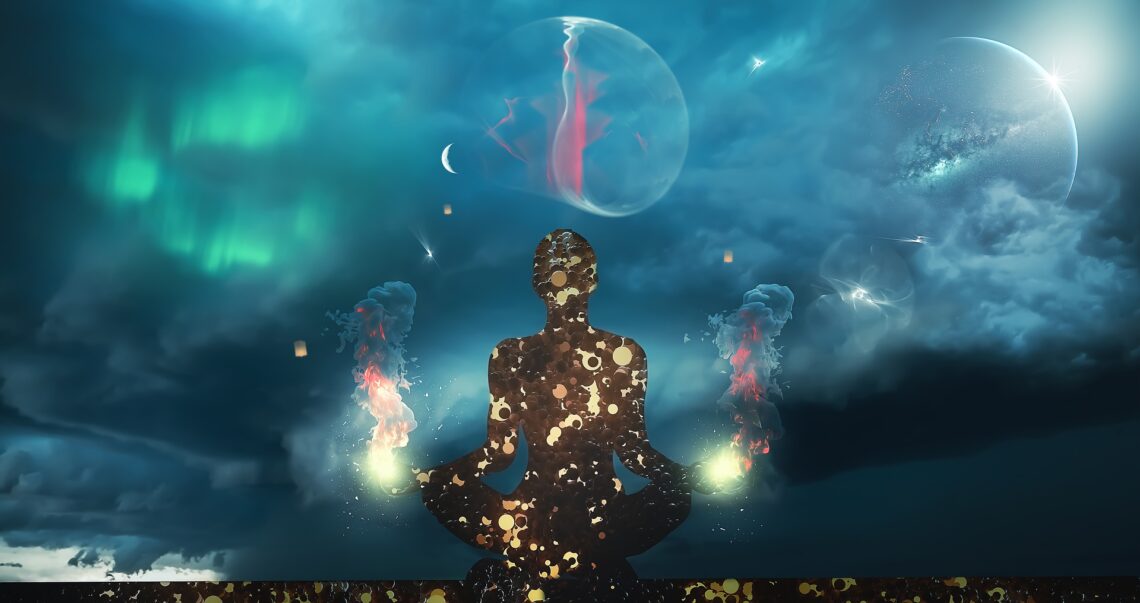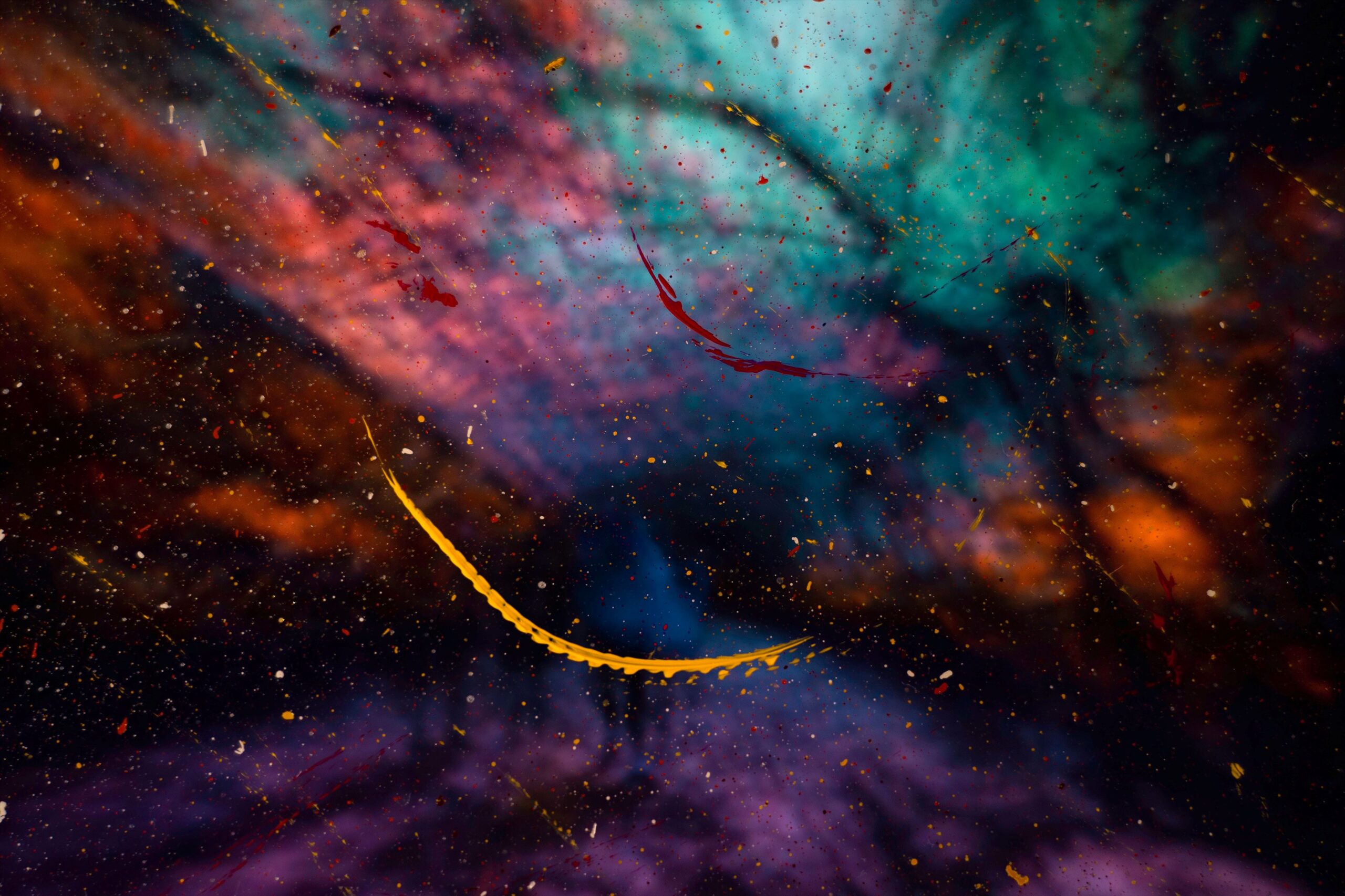
Empedocles and Spiritual Determinism
When I began writing this series on Peter Kingsley’s view of Empedocles, I thought it would be just one article. Now I am on my fifth article. Each time I think my next article will be my last, something draws me to explore and write more. It’s been an eye-opening experience.
Kingsley is an internationally renowned expert on the Western tradition’s philosophical and mystical roots. In his autobiography, A Book of Life, he explains how Empedocles, through mystical experiences, became his teacher.
Having previously read most of Kingsley’s books, I was intrigued by this and went back to discover what about Empedocles had so gripped Kingsley, and now has gripped me.
Free Will and Determinism
In his book, Reality, Kingsley discusses Empedocles’ stories of the cosmos and soul. I covered the basics of those stories in the first article of this series, linked here. But in this article I want to focus on Kingsley’s view of the free will vs. determinism controversy inherent in those stories.
Empedocles’ story of the cosmos and soul are events that endlessly repeat themselves. By that I mean people start in heaven living perfect lives and then fall into a finite material existence filled with violence, suffering, and misery. Our current life is an instance of this fall. Eventually, however, everyone returns to heaven, and the cycle starts again.
Kingsley figures people might ask how free will fits into this,
“If, for Empedocles, each cosmic cycle comes to an end, then there is no point in making an effort to do anything. Every contaminated soul will eventually be purified and returned to heaven. Trying to purify oneself, become better or wiser, seems futile: we might as well just sit back and wait. And for Empedocles himself to go to the trouble of being a teacher, acting as a prophet, tricking us so as to try and wake us up, is useless.
“In other words, if everything is basically predetermined this leaves us with no free will.”
Spiritual Determinism
As a believer in free will, I found this a little hard to swallow. But, rather than reject it outright (I have too much respect for Kingsley and now Empedocles to do that), I decided to push on and see if they could convince me. I hope you will too.
The determinism Kingsley refers to here is not the materialistic determinism of Newton, Galileo, or Descartes, but rather a Spiritual Determinism.”
But for Kingsley, the answer to the free will vs. determinism debate was obvious.
“And yet the solution to the problem [whether we have free will or not] is utterly simple. We have no free will at all; but we are predetermined to think we do.”
Kingsley maintains that this concept of free will, which has inhabited the West for the past two thousand years, is “sheer vanity” and an “illusion.”
He claims we only make an effort to liberate ourselves from the misery of this finite world because our effort is preordained. He says our only genuine freedom is to cooperate with necessity. In other words, embrace our destiny as we move forward in life.
Kingsley understands how this might sound to the modern Westerner, myself included,
“Of course, that sounds terribly restrictive to us as humans who want to be separate, individual, different from nature: different from everything. But this is because we have already restricted ourselves by wanting to be so many things. For it’s only when we realize we are not separate at all that we start to become free.”
The Fall From Heaven is Preordained
For Empedocles, this fall from the heavens because our “limbs have become polluted” is necessary. It is inevitable. At the beginning of this cycle, we participate unconsciously and against our will.
But as the cycle progresses, we respond to an obligation to become conscious. We have no choice but to accept help in this endeavor, meaning somebody like Empedocles is obliged to assist us.
Kingsley says,
“We are bound to do whatever we can to become more conscious.”
Double Responsibility
The strange thing for the ancient Greeks is that even though the fall from the heavens was preordained, humans still have to take responsibility for their fall.
We see this “double responsibility” in the Greek tragedy of Oedipus Rex. Oedipus was fated to kill his father and marry his mother. Aware of this fate, Oedipus tried desperately to escape it, yet still ended up fulfilling it.
To our modern mind, we might think Oedipus did everything he could to avoid his fate, so when he unconsciously stumbles into fulfilling it, we want to absolve him of blame. However, the ancient Greeks are not so kind. Though Oedipus is a sympathetic character, and he did all he could to avoid his fate, for the ancient Greeks, he must still be held accountable.
Kingsley explains this concept.
“But the important thing to understand is that even if the blame for what once happened or happens is not really ours, we still have to take responsibility for our illusory failings and suffer all their illusory consequences in this world of total deception.
“All our apparent choices have been made for us. And yet we are still obliged to go through the routine, the charade of seeming to make them. Everything is decided for us—even whether to go on reading this book [or article] or not, whether to move our arms, object or agree, get up or stay sitting, think about next week.”
Free From Illusion
Kingsley then extends this to our quest to be free.
“Even the longing to be free, to grow in awareness, be more conscious, is predetermined by our inner nature; is our own divine self drawing us to itself. And to become one at last with that inner nature is to realize everything is bound by absolute laws.
“Then we are free: free from the illusion of having to choose, free simply to be ourselves.
“But when every soul is dragged out of heaven once more at the beginning of a new cycle, as they most definitely will be, the illusion starts all over again.”
It’s all Pointless and That’s the Point
So, this state of trying to grow and attain greater consciousness to escape the suffering of this finite world will finally, in the end, only lead us, once again, to fall out of our heavenly abode and repeat the whole process again and again. What could be more futile, more pointless?
Kingsley comments on the ramification of this,
“There is a cosmic law, though, which states that whenever you come to the point of total pointlessness, some other point is always lying behind it. When purposefulness gives way to futility, a greater reality is just outside of view.”
Constant Change Leads to Stillness
So Kingsley explains that the reality behind the constant motion of repeatedly falling out of the heavens and then returning, is the cessation of all motion.
Kingsley says,
“As soon as he [Empedocles] starts describing the phenomena of constant change, he almost defiantly points to a state quite free of any change.”
Kingsley says we get so wrapped up in the constant changes around us that we miss the bigger picture. Yes, there is continuous change, but it is repetitive, so it is not really change at all. It’s just the same thing over and over again. Those who have developed a keener awareness will see that constant change is really no change at all.
Kingsley says,
“To observe this with complete awareness is to see that once movement has repeated itself long enough, the motion turns to motionlessness. Through accepting movement totally, not just partially, we discover nothing but total stillness.
“Then there is nothing to go after any more, and nothing to avoid.”
Stillness is Freedom
That is when Kingsley says we are free. We realize that the soul’s return to the heavens is also transitory and illusory. The whole thing is a game. In the stillness, we realize there is no movement up or down or forwards or backwards. It’s all illusion. From the standpoint of stillness, we are always where we are and can be nowhere else.
This perspective reminds me of the Hindu notion of “samsara,” the wheel of birth, death, and rebirth. We keep dying and being reborn until we attain enlightenment. Until we see through the game we are playing in this life.
We continue to go through these motions, but we now know how illusory they are.
Kingsley describes this state,
“We go through the apparent motions of making unreal choices and decisions, being glad or disappointed, seeming to prefer this to that or that to this.
“But inwardly, it’s all over. The drama has no substance.
“To find that stillness means neither being drawn into the illusions nor trying to escape them. It means that, even when trapped, we are free.”
What are we free from? The illusions that typically run our existence in this world. We realize that underlying all this is Being.
So, while I have a problem with the materialistic determinism of Newton, Galileo or Descartes, Spiritual Determinism is another matter.
I’m still not completely convinced by Kingsley’s arguments, so I may delve into this concept more deeply in my next article. The ideas are already gurgling in my brain.
To learn more about the Intelligence and Magic of the Universe: Click this link: The Magical Universe
Also, you can visit my website and sign up for my email list: https://www.bruce-mcgraw.com/



